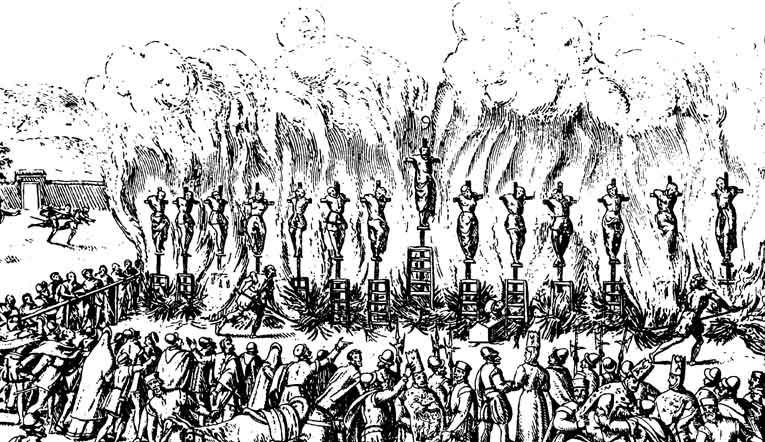Violence Religious aspects Christianity
Enlarge text Shrink text- Work cat.: Vrede maken, c1999
Christians have had diverse attitudes towards violence and nonviolence over time. Both currently and historically, there have been four attitudes towards violence and war and four resulting practices of them within Christianity: non-resistance, Christian pacifism, just war, and preventive war (Holy war, e.g., the Crusades). In the Roman Empire, the early church adopted a nonviolent stance when it came to war because the imitation of Jesus's sacrificial life was preferable to it. The concept of "Just War", the belief that limited uses of war were acceptable, originated in the writings of earlier non-Christian Roman and Greek thinkers such as Cicero and Plato. Later, this theory was adopted by Christian thinkers such as St Augustine, who like other Christians, borrowed much of the just war concept from Roman law and the works of Roman writers like Cicero. Even though "Just War" concept was widely accepted early on, warfare was not regarded as a virtuous activity and expressing concern for the salvation of those who killed enemies in battle, regardless of the cause for which they fought, was common. Concepts such as "Holy war", whereby fighting itself might be considered a penitential and spiritually meritorious act, did not emerge before the 11th century.
Read more on Wikipedia >
 Topic
Topic










